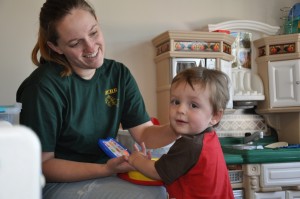The delayed development of adolescents will a major impact upon the future of the United States. Many researchers are proposing causes of this issue. In Part 1, I examined the delay of marriage and parenting, educational patterns, and the isolation of adolescents from adults as possible causes of delayed development. In Part 2, I will be looking at three other probable causes of the delayed development of adolescents.
Perception of Adulthood
Many adolescents show great ambivalence about obtaining adult status, because they hold negative perceptions about what that entails. Like Peter Pan, Adolescents today are asking themselves the question, “Do I want to be an adult?” (or remain a lost boy in Neverland).  With the increasing tolerance towards sexual freedoms, greater discretionary spending from living at home (without the obligation of rent), and decreased responsibility that comes from extending adolescence, they wonder why they would want to become an adult? Reaching adulthood has lost its allure and a sense of privileges to be obtained, and is now often viewed as the “beginning of the end.” Alex and Brett Harris, coauthors and founders of therebelution.com, attribute it to the “Myth of Adolescence, which encourages teens to view adulthood as spoiling the fun of the teen years rather than view it as the fulfillment of the teen years” (Harris).
With the increasing tolerance towards sexual freedoms, greater discretionary spending from living at home (without the obligation of rent), and decreased responsibility that comes from extending adolescence, they wonder why they would want to become an adult? Reaching adulthood has lost its allure and a sense of privileges to be obtained, and is now often viewed as the “beginning of the end.” Alex and Brett Harris, coauthors and founders of therebelution.com, attribute it to the “Myth of Adolescence, which encourages teens to view adulthood as spoiling the fun of the teen years rather than view it as the fulfillment of the teen years” (Harris).
Parenting Style
Another factor delaying the maturation of adolescents is the parenting practices of today’s families. Smith states,
 Simply by living and interacting with their children, most parents establish expectations, define normalcy, model life practices, set boundaries, and make demands—all of which cannot help but influence teenagers, for good or ill. (Smith)
Simply by living and interacting with their children, most parents establish expectations, define normalcy, model life practices, set boundaries, and make demands—all of which cannot help but influence teenagers, for good or ill. (Smith)
Today’s parents are often called “helicopter” parents because they tend to hover over their children, especially in the areas of their education (Rainer and Rainer). Helicopter parents can delay their child’s maturation, by enabling them rather than forcing their adolescents to move forward.
Economic Changes
Smith notes a final cause of delayed development: changes in the current economy. He states,
“…changes in the American and global economy that undermine stable, lifelong careers and replace them instead with careers with lower security, more frequent job changes, and an ongoing need for new training and education.” (Smith)
 As the job market becomes more difficult, emerging adults are waiting for security before they take other steps into adulthood. Danziger and Rouse say that “it is taking young men longer to secure well-paying, stable employment that will allow them to support a family—the critical economic outcome in the transition to adulthood.“ (Danziger and Rouse).
As the job market becomes more difficult, emerging adults are waiting for security before they take other steps into adulthood. Danziger and Rouse say that “it is taking young men longer to secure well-paying, stable employment that will allow them to support a family—the critical economic outcome in the transition to adulthood.“ (Danziger and Rouse).
Many emerging adults who grew up in financially affluent or stable environments want the same for themselves before they get married or have a child. “The primary cause for our generation’s delay in reaching the promised land of independence, scholars agree, is economic development” (Kamenetz). Scholars are not truly in agreement, and the complexity of this issue makes it impossible to declare the main causes of the developmental delay in adolescents; however, economic factors are near the top of most lists.
Resources
Danziger, Sheldon and Cecilia Elena Rouse, eds. The Price of Independence: The Economics of Early Adulthood.
Harris, Alex and Brett. Do Hard Things. A Teenage Rebellion Against Low Expectationgs.
Kamenetz, Anya. Generation Debt: Why now is a terrible time to be young.
Rainer, Thom S. and Jess W. Rainer. The Millennials: Connecting to America’s Largest Generation.
Smith, Christian. Lost in Transition: The Dark Side of Emerging Adulthood.
Smith, Christian and Melinda Lundquist Denton. Soul Searching: The Religious and Spiritual Lives of American Teenagers.





